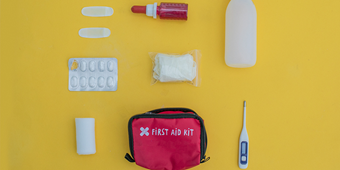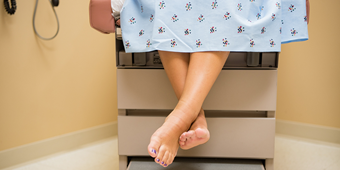Back Ache? Hold Off on the Pills
Premier Health Now
Feb 21, 2017

Find Your Perfect Match
Answer a few questions and we'll provide you with a list of primary care providers that best fit your needs.
And you may believe that the quickest route to comfort is a walk to your medicine cabinet.
But not so fast.
The American College of Physicians recently released new treatment guidelines for lower back pain. The guidelines recommend skipping medicine — prescription and over-the-counter — as the treatment of first resort.
Instead, the ACP recommends starting with alternatives like exercise, stretching, massage therapy, acupuncture or yoga.
Premier Health Now asked Mark Williams, MD, of Beavercreek Family Physicians, to explain. Dr. Williams agrees with the new guidelines. “Ice, heat and stretching tend to relieve discomfort as much as anti-inflammatories and pain meds,” he said. Exercise like walking, he adds, increases blood flow, which delivers natural relief to aching muscles and joints.
When exercising, he advises, “listen to your body. If you do something that causes severe pain, it’s probably not helpful. But a little increase in pain is nothing to worry about.”
Plus, he said, “studies show that you’ll get better no matter what you do when you have garden-variety lower back pain. Most healthy adults resolve back pain in a few weeks.”
“We live in a society where we want instant relief from everything. I get that. I don’t like pain, either,” Dr. Williams says.
In a few cases, certain symptoms may accompany back pain and signal a serious underlying condition that calls for immediate medical attention, Dr. Williams said. Call your doctor if you experience back pain with loss of bladder or bowel control or loss of sensation (“saddle anesthesia”) around the buttocks, groin and inner surfaces of the thighs.
When it comes to common lower back pain, Dr. Williams questions the effectiveness of pain medicine. “On a scale of 1 to 10, medications might decrease back pain from a 6 to a 5 or a 7 to a 6. But it’s negligible.”
And the side effects of medications can outweigh the benefits, he added. These include harmful interactions with other drugs, stomach ache, bleeding and ulcers.
As always, if you have questions about care for back pain, contact your doctor or health care provider.
Find Your Perfect Match
Answer a few questions and we'll provide you with a list of primary care providers that best fit your needs.
Source: Mark Williams, MD, Beavercreek Family Physicians; New York Times





